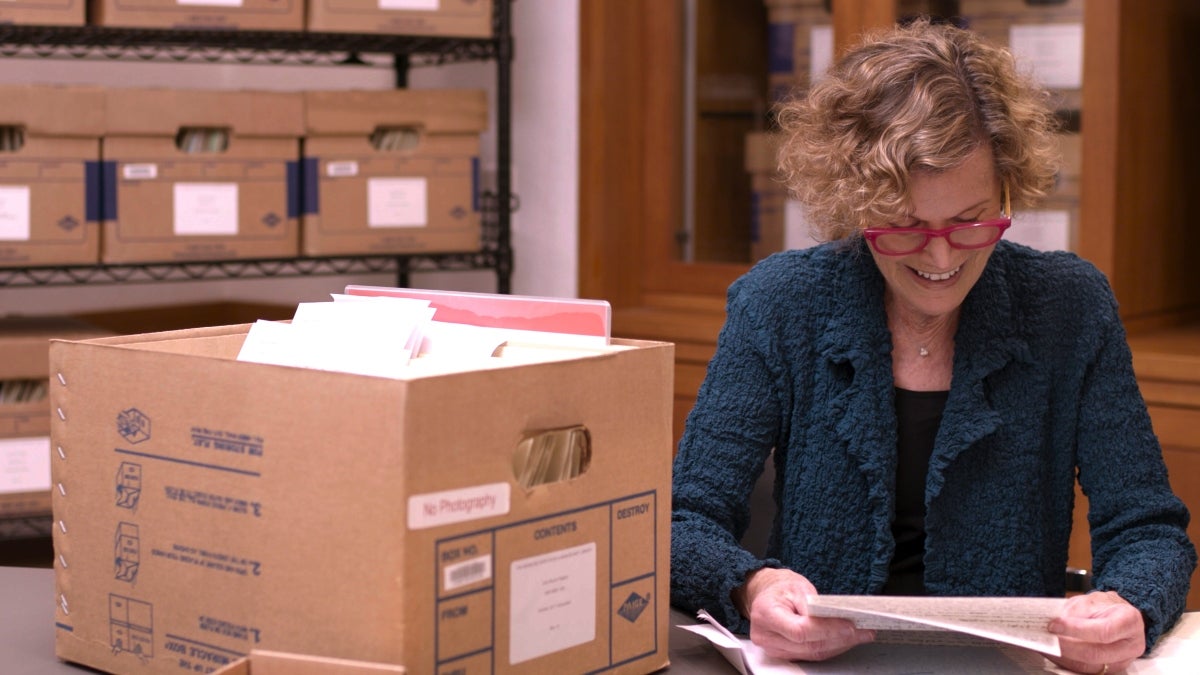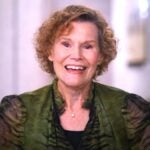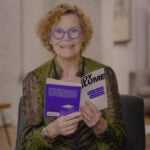
Davina Pardo and Leah Wolchok’s documentary film “Judy Blume Forever” captures the popular author’s understanding of children by including her archive of letters she exchanged with fans who were growing up at the time she began writing her books.
The film, which premiered at the 2023 Sundance Film Festival and arrives on Amazon Prime Video, unfolds Blume’s path to writing in a similar coming-of-age format to match the genre for which she is most well-known. Access to Yale’s collection of all the letters Blume wrote to and received from fans allowed the true connection Blume had with children to shine.
“With that collection, we understood that we had something really special and that would be very different from just your average, typical biography-type documentary,” producer Sara Bernstein told TheWrap. “The project was really about her impact on her readers over the years.”
The documentary immediately plunges viewers into an experience similar to that of discovering Blume’s books — with Blume reading an excerpt about masturbation from “Deenie.”
“We had some different versions of the opening and many different versions that we tried, and this is the one that felt the most honest, the funniest, it gets you right into her head, gets you her trailblazing honesty,” co-director Leah Wolcok told TheWrap. “It makes you a little uncomfortable, and I think that was important to put people on notice, like, ‘Oh, okay. All right. We’re going there and just let’s relax and go there for the rest of the film.”
According to co-director Pardo, the start of the documentary establishes Blume’s writing voice and personality simultaneously, hinting at how she became a successful author. Pardo corresponded with Blume for a year and a half before getting the author’s blessing to make the film. The filmmakers aimed to mirror the curiosity around coming of age that children have.
“Because Judy had so many coming of age moments throughout her life, it was always going to cover childhood, adolescence and adulthood in Judy’s life, but also the story of her books,” Pardo said. “We’re really focused on the intersections of her life and the books. There are so many moments in the books that even though they’re not necessarily autobiographical, they come from really specific, intimate moments in her life. We’re really interested in sort of an interplay of those coming of age stories, and the coming of age of for readers, which is sort of also happening at the same time in the film.”
Actresses and creators Molly Ringwald, Anna Konkle, Lena Dunham and more also commented on Blume’s strides that encouraged them to portray female adolescence in their respective works like the John Hughes films, “PEN15” and “Girls.”
“We [also] wanted to talk to women who had really revolutionized the way that female protagonists are seen in American popular culture. They were all Judy Blume readers,” Pardo said. “We wanted to interview them all in the same setting with that abstract vintage wallpaper, quirky prop living room setting that was inspired by the original paperback covers of Judy’s books, and we wanted to treat them all the same.’
Pardo and Wolcok interviewed other published authors, many of whom made their own strides in the battle for diverse young adult books, like Mary H.K. Choi, Tayari Jones, Jason Reynolds and more, about Blume’s work and its influence on their childhood and adolescence. These authors also discussed book bans, which became relevant near the film’s release, just as they were in the ’80s. The documentary precedes the long-awaited film adaptation of “Are You There God? It’s Me Margaret?” starring Abby Ryder Forston, Rachel McAdams, Benny Safdie and Kathy Bates.
“We talked to her a lot about how her books are never neatly tied up. Margaret’s left wondering because that’s we’re all left wondering so much of the time,” Pardo said. “It’s so typical for kids. It’s not like the last chapter appears and you figure your life out. She never wanted stories and perfectly she wanted to be true to life and true to her own experience.”
Blume’s activism for the content of her books to remain readable in the 80s remains important today with regulators trying to dictate what young children can and cannot read. Margaret’s questioning of religion and the existence of God plays into the same fear around banning books today.
“She [questioned God] at a time when people did not think 11-year-olds could do that. Everyone thought 11 and 12-year-olds should be doing and thinking exactly what their parents wanted them to do and think and not question for themselves,” Wolcok said. “But that is the power of Judy’s work. She gave the power to the kids themselves. She saw how important it is to honor and respect a kid’s experience the child’s experience with questioning and wondering.”
Check out the trailer below:
“Judy Blume Forever” is now streaming on Prime Video.

















